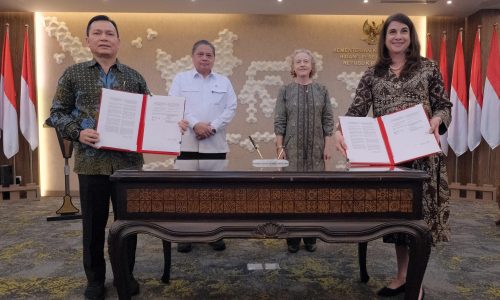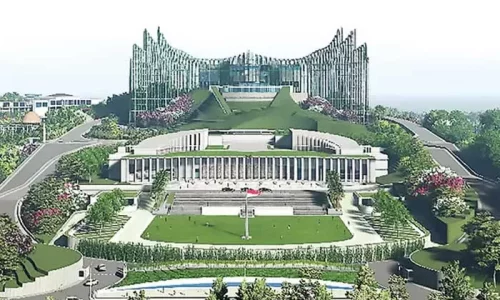The Center of Economics and Law Studies (CELIOS) research institute revealed that the state budget (APBN) deficit has the potential to exceed the safe limit and could reach three percent in 2029 due to the free nutritious meal program (MBG).
“If the MBG program continues to run until it reaches the target of 100 percent in 2029, the APBN deficit is estimated to reach 3.34 percent percent of GDP in 2029,” Bhima Yudhistira, Executive Director of CELIOS, said on Thursday, November 21, 2024.
The projection uses the assumption of 5 percent economic growth. However, the APBN deficit will still exceed 3 percent even if the economy grows by 7 percent.
According to CELIOS, fiscal flexibility will become narrower with the increasing ratio of the budget deficit to GDP. The impact is that the government does not have enough fiscal space to make the necessary spending to stimulate the economy outside of routine spending.
Budget strain and tax burden
MBG is a program of President Prabowo aimed at improving the quality of Indonesian human resources. The program aims to provide nutritious food for 82 million recipients, including school children, Islamic boarding school students, toddlers, and pregnant women.
The program is allocated through the education budget which cuts almost 10 percent of the total 2025 national education budget, worth Rp71 trillion (US$ 4.5 billion).
Amalia Adininggar Widyasanti, Deputy for Economic Affairs at the Ministry of National Development Planning (PPN) said that the MBG program will basically have a positive impact on economic growth.
“What is clear is that MBG will be one of the engines of our economic growth,” she said on Thursday, November 21, 2024.
Although, it has a positive impact on national GDP of 0.06 percent or Rp7.21 trillion, CELIOS warns that this large budget allocation has the potential to burden state finances. On the other hand, it has a negative impact on the education sector with an economic loss of Rp27.03 trillion.
CELIOS is concerned that the quality of national education will be disrupted due to the reduced budget. The workforce in the education sector could be threatened due to the reduction in compensation of Rp27.03 trillion. In addition, government workers’ income also fell by Rp41.55 trillion.
“This redistribution of funds has the potential to reduce employment opportunities by up to 723 thousand in the education sector, including teachers and lecturers,” Nailul Huda, Director of Digital Economy at CELIOS, said.
Dyah Ayu, an economic researcher at CELIOS, said the MBG program poses a major challenge in terms of cost requirements, especially taxes.
“The tax ratio is difficult to increase with an economic situation full of external challenges and weakening middle-class consumption,” she said.
Indonesia’s tax ratio in the 2025 State Budget is only 10.09 percent, still far from the ambitious target of 23 percent in 2029. If not balanced with a strategy to increase state revenue, it could become an additional burden that widens the budget deficit.
Bhima said the government is more creative in seeking funding for MBG, but suggested that Value-Added Tax (VAT) should not be increased to 12 percent to finance priority programs.
“There are many ways that can be done, one of which is by imposing a wealth tax that can contribute Rp81.6 trillion in one application,” he said.
He hopes the government will not sacrifice the middle class to finance various programs, and prevent tax leakage in various extractive sectors.









